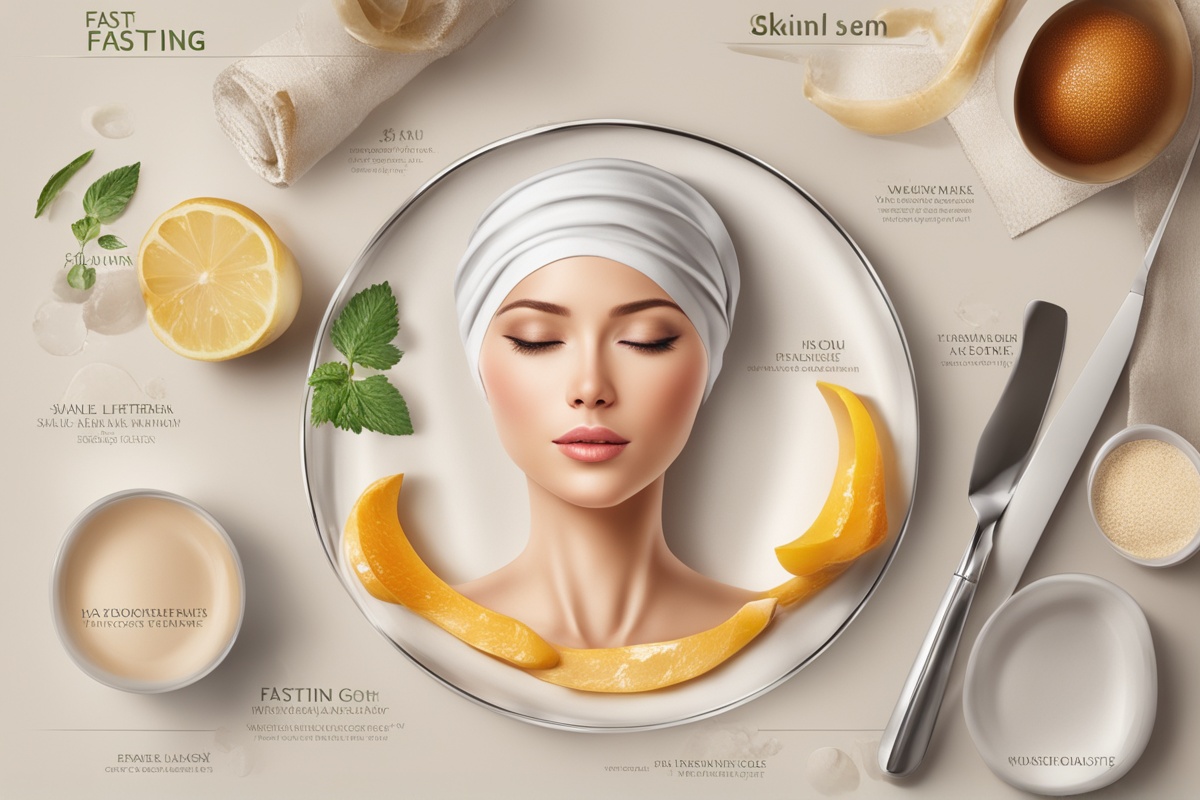In recent years, the connection between diet, lifestyle, and skin health has gained significant attention. One emerging approach that many are exploring is fasting for acne reduction. This practice involves abstaining from food for specific periods to potentially improve skin clarity and reduce breakouts. By understanding how fasting impacts the body, particularly hormonal balance and inflammation, you can uncover new ways to achieve healthier skin. In this article, we’ll dive deep into how fasting works, its benefits for the skin, and practical tips to incorporate it into your routine.
How Fasting Helps Clear Acne
Fasting, particularly when used as a strategy for acne reduction, can influence several bodily processes that contribute to clearer skin. When you fast, your body enters a state of rest and repair, allowing it to focus on detoxification and reducing inflammation—two key factors in acne development. Studies suggest that fasting can lower insulin levels, which often play a role in overactive sebum production, a primary cause of clogged pores [1]. Additionally, fasting may reduce oxidative stress in the body, which can otherwise trigger acne flare-ups.
To make the most of fasting for skin benefits, consider starting with shorter fasts of 12–14 hours to allow your body to adjust. Hydration is critical during fasting periods, so drink plenty of water to support detoxification. Furthermore, fasting can promote autophagy, a cellular cleanup process that may help remove damaged cells and reduce inflammation on the skin’s surface. By incorporating this practice, many individuals notice a gradual improvement in their complexion over time.
Intermittent Fasting for Better Skin
Intermittent fasting, a popular method of cycling between eating and fasting periods, is often praised for its potential to enhance overall health, including skin appearance. This approach can involve schedules like the 16:8 method, where you fast for 16 hours and eat during an 8-hour window. By reducing the frequency of meals, intermittent fasting may stabilize blood sugar levels, which can, in turn, minimize hormonal fluctuations that contribute to acne [2].
Imagine discovering that a simple change in your eating pattern could lead to fewer breakouts. Many who try intermittent fasting report not only weight management benefits but also a noticeable reduction in skin redness and irritation. To start, choose a fasting window that aligns with your daily routine, such as skipping breakfast or eating an early dinner. Pair this with nutrient-dense foods during eating periods to support skin repair. For more insights on managing hunger during fasting, check out Top Tips for Managing Hunger While Working Remotely.
Can Skipping Meals Reduce Breakouts?
One common question is whether simply skipping meals can lead to fewer acne breakouts. While the idea seems straightforward, the relationship between meal timing and skin health is more complex. Skipping meals sporadically without a structured plan may lead to stress or overeating later, which could worsen skin conditions. However, planned fasting periods can help regulate the body’s response to food intake and potentially lower inflammation markers that contribute to acne [3].
What is fasting for acne reduction, and how does skipping meals fit into this? It’s about creating a consistent pattern that allows your digestive system to rest, potentially reducing the burden on your body and minimizing triggers for breakouts. If you’re considering this approach, avoid skipping meals randomly and instead follow a guided fasting schedule. Monitor how your skin responds over a few weeks to determine if this method works for you. For additional health benefits of fasting, explore Fasting Benefits: Boost Health & Energy Naturally.
Fasting Benefits for Skin Clarity
Beyond acne reduction, fasting offers a range of benefits for overall skin clarity. When you fast, your body often shifts into a state of ketosis, where it burns fat for energy. This process can reduce systemic inflammation, a common underlying factor in many skin issues. Fasting also supports better gut health by giving your digestive system a break, which is crucial since gut imbalances are often linked to skin problems [4].
Here are some specific ways fasting can enhance skin clarity:
- Reduces inflammation by lowering cytokine levels, which are often elevated during acne flare-ups.
- Promotes hormonal balance by stabilizing insulin and cortisol levels, key players in oil production.
- Enhances detoxification processes, helping to clear out toxins that may manifest as skin blemishes.
- Supports gut healing, which can indirectly improve skin health by reducing internal imbalances.
By incorporating fasting into your routine, you may notice not just fewer breakouts but also a more even skin tone. Remember to break your fast with balanced meals to avoid nutrient deficiencies that could counteract these benefits.
Diet Breaks and Acne Improvement
Taking intentional breaks from constant eating, often referred to as diet breaks, can be another effective way to support skin health. These breaks don’t necessarily mean complete fasting but rather reducing the frequency or quantity of meals for a short period. This approach can help reset your body’s response to food, particularly if your diet includes processed sugars or dairy, which are known to exacerbate acne for some individuals [5].
Imagine finding that a few days of lighter eating could transform your skin’s appearance. During diet breaks, focus on hydration and light, nutrient-rich foods like vegetables and lean proteins when you do eat. Avoid heavy or inflammatory foods that might undo the benefits of the break. For more on how fasting impacts other areas of health, read Fasting and Liver Health: Top Benefits.
Fasting for Skin Health: Does It Work?
The concept of using fasting to improve skin conditions has gained traction, but does it truly work for everyone? The answer depends on individual factors such as lifestyle, diet, and the type of fasting practiced. Research indicates that fasting can positively influence factors like inflammation and hormonal balance, which are directly tied to skin health [6]. However, results vary, and fasting should be approached with realistic expectations.
For some, fasting leads to significant improvements in acne and overall skin texture within weeks. For others, the effects may be subtler or take longer to manifest. To determine if fasting works for you, start with a simple intermittent fasting schedule and track changes in your skin over a month. Pair this with a clean diet and proper skincare to maximize results. Remember that fasting is not a one-size-fits-all solution, and consulting a healthcare provider is wise if you have underlying health conditions.
Here are a few tips to ensure safe and effective fasting:
- Start slowly with shorter fasting windows to avoid stress on your body.
- Stay hydrated with water or herbal teas during fasting periods.
- Listen to your body—if you feel unwell, adjust your approach or seek guidance.
This content is for informational purposes only.
References
- [1] Study on the effects of fasting on insulin levels and skin health, Journal of Dermatology, 2023
- [2] Research on intermittent fasting and hormonal balance, Health Science Review, 2022
- [3] Article on meal timing and inflammation, Skin Health Today, 2021
- [4] Guide to fasting and gut-skin connection, Nutrition Insights, 2023
- [5] Report on diet breaks and acne triggers, Clinical Nutrition Journal, 2022
- [6] Overview of fasting benefits for skin clarity, Wellness Research Hub, 2024



